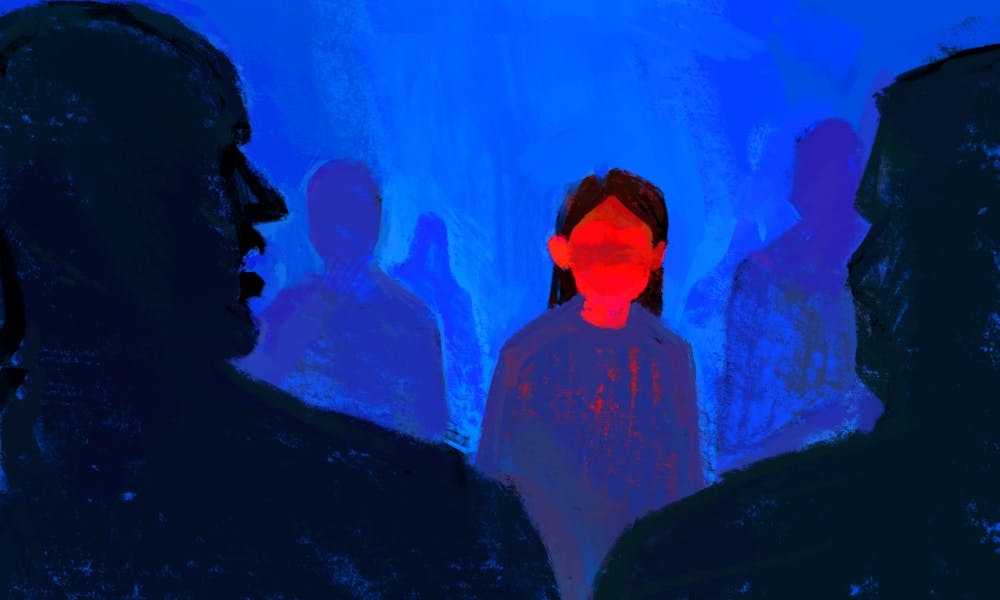
As a resident of Philadelphia, I see the University of Pennsylvania as a beacon of educational excellence and a cultural touchstone for our region. My family and friends were educated there, work there, or are supported by scholarships endowed by Penn.
That’s why it’s heartbreaking for me to file a complaint with the Department of Education’s Office for Civil Rights, on behalf of the Hindu American Foundation, saying that Penn has not done enough to combat a hostile environment for Indian and Hindu students, faculty, and staff on its campus. In its failure to act, we believe Penn may have violated its responsibilities under Title VI of the Civil Rights Act of 1964.
The catalyst for HAF was the co-sponsorship by the South Asian Studies Department of an online conference called “Dismantling Global Hindutva,” a conference we were told was conceived of by Penn faculty.
Hindutva is a term with many definitions. Many practicing Hindus and Hindu spiritual leaders define the term literally, according to its Sanskrit root, as the essence of being Hindu. Others define Hindutva as a political ideology, ascribed to the current ruling party in India, and use words like “fascist,” “supremacist,” and “violent” to describe it. The faculty at Penn co-sponsoring the DGH event ascribe to the latter version of Hindutva.
As soon as the conference was announced, tens of thousands of letters were sent to all co-sponsoring universities, including Penn, by Hindu Americans who feared that disclaimers made by the organizers that their critique would focus on Hindutva would prove empty and Hinduphobia would be platformed by the conference.
Penn ignored all of those letters in which Hindus said they were convinced that the invited faculty, with long histories of activism, would conflate and condemn Hinduism and Hindutva, without distinguishing between them.
During the actual conference, in back-to-back panels, that is exactly what happened.
Speaker after speaker discarded any pretense of separating Hinduism from Hindutva and pointed to Hindus as violent and inherently bigoted and a danger to democratic values.
“I take Hindutva as political Hinduism, not a distortion of some inherently benign religion, but a historical expression of it,” said one speaker.
“Harboring the idea that Hinduism is harmless and Hindutva is the culprit will not do anything to further democratic ideals,” said another.
“I emphasize, without hesitation, that Hindutva is inseparable [from] Hinduism. And arguments that Hindutva is not Hinduism are deeply dangerous and will not lead us to the future we want,” said a prominent academic and another featured speaker at the event.
Unbelievably, one moderator, a former faculty member at Penn, even asked panelists if, instead of focusing on dismantling Hindutva, the focus should really be on dismantling Hinduism.
Speakers at the conference even said that Hinduism was behind India’s social inequities. Slurs such as "Brahmanism" were frequently used. This non-Indigenous, invented word encapsulates racist, Eurocentric constructions about Hinduism as a false religion made up by its priests and was also informed by deep antisemitism. Brahmanism is an analogue to now-discarded pejorative and offensive terms such as papism and Mohammedanism.
One presenter recited five common Hindu surnames and claimed people with these Hindu names were responsible for violence, perpetuating, in his words, “malignant Brahmanism.” Penn has at least 90 students, faculty, and staff with those very names.
This disturbing conference, reportedly viewed by over 30,000 people, came on the heels of the release of a “Hindutva Harassment Field Manual,” authored by the South Asia Scholar Activist Collective, which includes faculty at Penn.
The manual warns Muslim, women, LGBTQ, and other students that they are at risk of Hindu students who may espouse “elite Hindu-centric ideas" — despite Hinduism’s well-known teachings of oneness and pluralism, as well as the existence of significant philosophical strands that are accepting of LGBTQ people.
This manual also dismisses the existence of Hinduphobia, alleging that Hindus are merely appropriating social justice and anti-racist language and that “Hinduphobia rests on "the false notion that Hindus have faced systematic oppression throughout history and in present times.”
This cruel argument erases well-documented religio-ethnic cleansing and genocides of Hindus throughout South Asia and the institutionalized discrimination and human rights violations they face in other parts of the world — not to speak of the bias, discrimination, and hate crimes faced by Hindus right here at home.
As a parent of a recent college graduate and another in his second year, I’m horrified by scholar-activists at Penn who seem so intoxicated by the power of “The Academy” and a tyranny of certainty in their ideological stances, that they believe targeting Hindus for their beliefs and practices with negative stereotypes, slurs, and distorted facts is an acceptable exercise of “academic freedom.” I’m worried that the University, through its silence, is allowing scholar-activists to trump the rights of students and other faculty to freely engage in open inquiry or to express different ideas or perspectives from the loudest among them without fear of censure or retaliation.
Regardless of whether the Department of Education proceeds with a Title VI investigation into the role of Penn faculty in promoting Hinduphobia and anti-Hindu hatred, the University should. It should also take this toxic episode as an opportunity to extend its support to Hindu students and faculty and reiterate that Penn is committed to open inquiry, viewpoint diversity, and civility — especially where people disagree.
SUHAG SHUKLA is the executive director of the Hindu American Foundation. Her email is suhag@hinduamerican.org.
The Daily Pennsylvanian is an independent, student-run newspaper. Please consider making a donation to support the coverage that shapes the University. Your generosity ensures a future of strong journalism at Penn.
Donate






